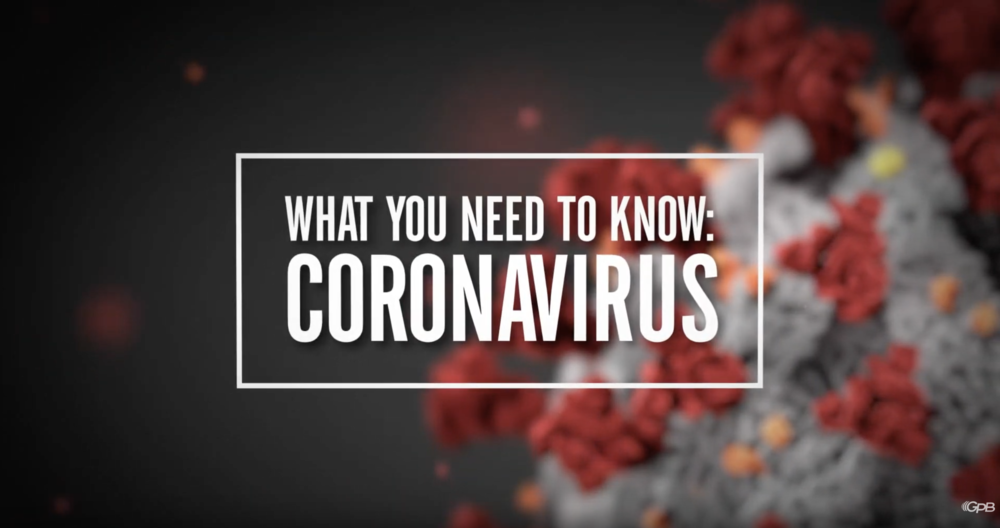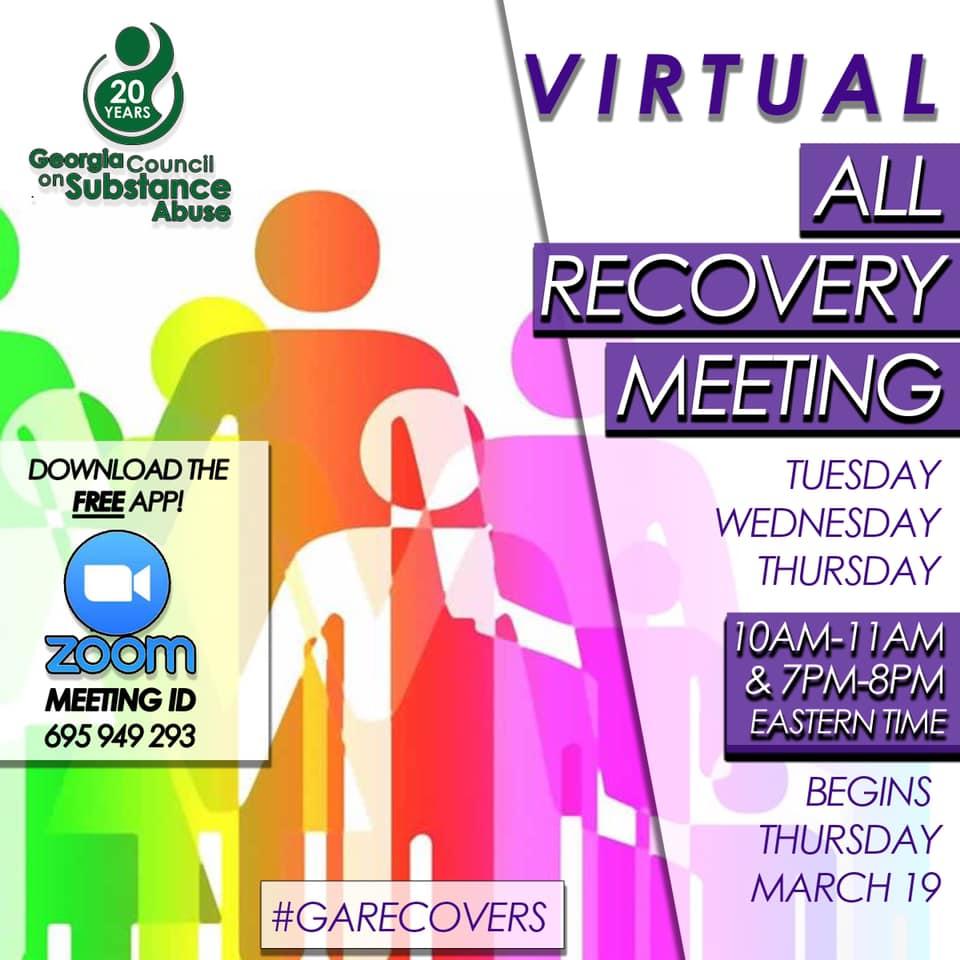Section Branding
Header Content
What You Need To Know: Dealing with Substance Abuse While Self Isolating
Primary Content
Georgia Public Broadcasting’s new series What You Need To Know: Coronavirus provides succinct, fact-based information to help you get through the coronavirus pandemic with your health and sanity intact.
Jeff Breedlove, chief of communications and policy at the Georgia Council on Substance Abuse, speaks with Virginia Prescott about the ways to stay in touch with those in substance abuse recovery during the coronavirus shelter-in-place orders.
RELATED: Social Distancing Means People Who Need People Have A Tough Time Staying Sober
Specialists in the addiction field say the coronavirus pandemic is a "relapse trigger." What are your concerns about people now in recovery?
Well, we're very concerned at the Georgia Council on Substance Abuse. The opposite of addiction is connection. And the longer that people are isolated because of COVID-19 and the coronavirus, the greater the threat of people entering active addiction for the first time in relapsing who are in recovery. It's very real. It's happening already and it's only going to get worse before it gets better.
So what kind of services is the council offering for help?
We have three things that I'd like to share with you.
First is our Care line at 844-326-5400. It's private. It's confidential. It's open 8:30 a.m. to 11 at night, seven days a week. It's manned by a peer in recovery and anybody can just call and talk about anything they need to talk about.
The second thing is we've started a series of virtual all recovery meetings. These are on Zoom. We invite everybody from any type of issue they're dealing with, whether it's narcotics, alcohol, weight issues, gambling, sexual issues, whether you're a friend or ally of someone impacted by the disease. We get on these things. We've had over 30 and it's just the time for fellowship. It's a very safe, welcoming place. And these have been a great success with over 1,000 people participating already.
And then the third thing is each Wednesday at 12:00 noon on our social media through Zoom, we host with our executive director Neil Campbell as lead. She's hosting a recovering town hall meeting where we have stakeholders come on from government, business and healthcare to talk to the recovery community about how COVID-19 and the coronavirus has impacted the recovery community. These three things right there are three great free platforms that people can access.
Jeff, you have been public about being in recovery for yourself from drug addiction. I'm speaking to you in your personal capacity and your professional capacity. But I'm wondering on a personal level, what is it that these meetings, this connection, what does that do for addicts and alcoholics?
That's a great question. And of course, I still go, before this, three days a week to Doraville. I will drive up there. I have a series of meetings that I attend. When (the pandemic) hit, it impacted me. I was like, "What about my meetings, the weekly meeting, my one-on-one, face-to-face with my sponsor? What's going to happen?"
And so, now I've been on both sides of the screen, if you will, as a participant. And as a participant, I can tell you these meetings are my calming presence through the week. They let me interact with my brothers in recovery that I know. It's connectivity.
It gives me a chance to just share my good and bad, the indifferent, the boredom, the stress. And as a person in recovery, having the ability to continue with my groups has been a blessing. I think it makes my wife and son tolerate me in the house because it gives me an outlet. It gives me a sense of familiar surroundings with people that are safe and welcoming to me. And I believe these things save lives.
I know these meetings are meant to be anonymous. What happens when you're on a Zoom meeting online and other people can see who you are or where you live?
Well, that's a great question. And the answer is kind of technical. Well, we had those same questions and we started hosting them. But on Zoom, they have options where a person can put only their first name and they don't even have to show the picture. So you could just have a blank screen with the word "Jeff," for example, and you maintain your anonymity that way.
On the other hand, there are some people that need that human connection. They want to see other faces. So for those people, they can see each other and interact and see expressions. And so Zoom actually is doing a great job providing a platform for either side of that equation for people.
But I've also read about people or meetings, especially AA meetings being Zoom raided or Zoom-bombed by hackers who come on and say things like, "Wouldn't it be great to have a drink right now?"
That happened to us at one meeting. And it was ugly and it was scary and dangerous. The fact is there are protocols that Zoom has put in place — and we now exercise them — where if you just take a moment before you host a meeting, you can control it, for example, where everybody's muted before they log on, where they can only chat with the host. So I've got to give Zoom credit. They have responded to the Zoom bombings.
RELATED: Zoom CEO Tells NPR He Never Thought 'Seriously' About Online Harassment Until Now
And if you set the right control, you can control about 99% of it. And that's pretty good. What I've noticed in our meetings is that with that Zoom bombing that occurred for us, it brought everybody together. People who were our guests were resolved to get back on and we didn't lose a single person of all the regulars. We have regulars. And in our staff ... we had a staff meeting afterward and everybody was motivated and they said, "Nobody, no disease is going to beat recovery. Recovery's stronger than COVID-19."
And we're people that had been blessed to survive a disease that kills more people than anything else in America outside of COVID-19. We're sure not going to let somebody Zoom-bombing us in a meeting get in the way of our recovery. So it was a waste of time for our meeting. They haven't been back.
But I will say to anybody hosting any kind of meeting on Zoom. Take a look at their new protocols and make sure you implement them. They're very easy to do and the meetings have been just perfect ever since we had that one bad incident.
Well, in Georgia and throughout the country, dozens of treatment centers, clinics, recovery centers have been created in the throes of the opioid crisis. What are your concerns about what happens to those, the gains made in those fields since during the coronavirus pandemic?
Well, this is a very great question. Thank you so much. Our concerns are real and profound.
It is imperative that our leaders in Congress from the Georgia congressional delegation, from Governor Kemp from the members of the General Assembly who are now, you know, we now have the working group on addiction and recovery. It's a bipartisan group of members of the General Assembly, every county commissioner and every mayor. We need them to hear this message. And we need business leaders and faith leaders and education leaders to understand this: We cannot turn back the gains made in substance use disorder. It's only going to get worse.
The longer we're in isolation, the longer cope it lasts, the greater the risk for new people going into active addiction and relapses. There has to be funding in Congress. There has to be funding, in the next phase four and next phase five, for recovery programs.
And that's got to be bipartisan. It's got to be fully supported by Democrats and Republicans. It's got to be fully supported by the president. We have to have Governor Kemp and the members of the General Assembly as they manage the budget, get ready for the 2021 budget to make certain that funding is there for addiction recovery and mental health recovery programs because that reality is coming to communities across the state of Georgia, Waycross to Rome, from Athens to Columbus and everywhere in between.
I'm wondering for you, Jeff. Any message that you have for somebody who is struggling with active addiction right now or in recovery, what would you like to say to them?
Well, what I would say to them is you're not alone. First of all, and there is hope and there's better days ahead. And this, too, shall pass. And don't ever give up. You know, my active addiction lasted for 30 years. I implore you, call that Cares Warm Line on 844-326-5400. Get on any kind of virtual support meeting and connect with people. Just because you're physically separated ... We are not alone. There's a hashtag #OutThereAloneTogether.
You are not alone. There are people that are right where you are. There are people that love you. There's people that want to support you just to get you. And you can just connect and everything is going to be OK. We're going to get through this pandemic and we're going to have good days ahead.



